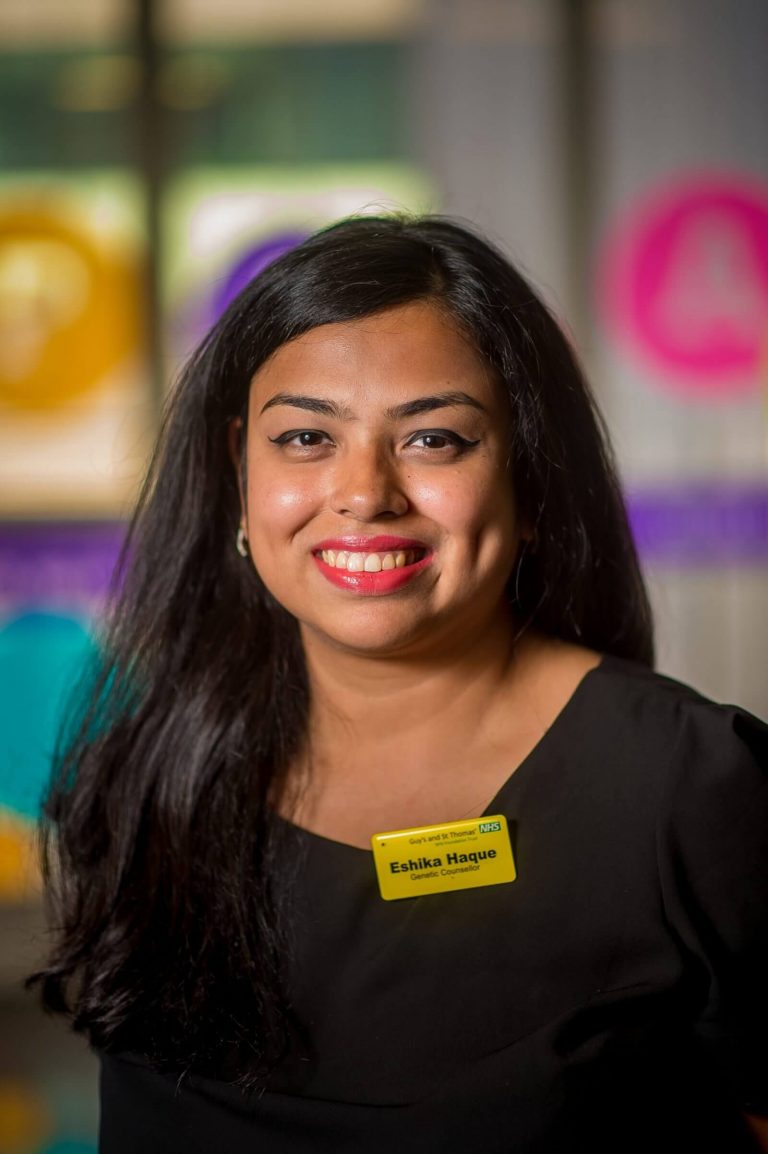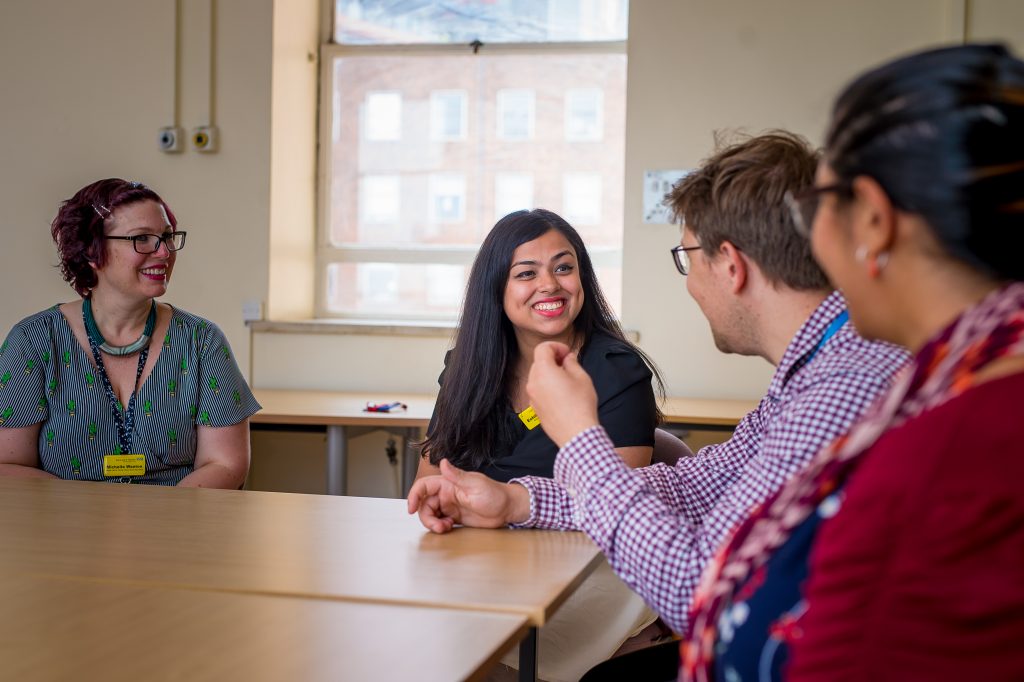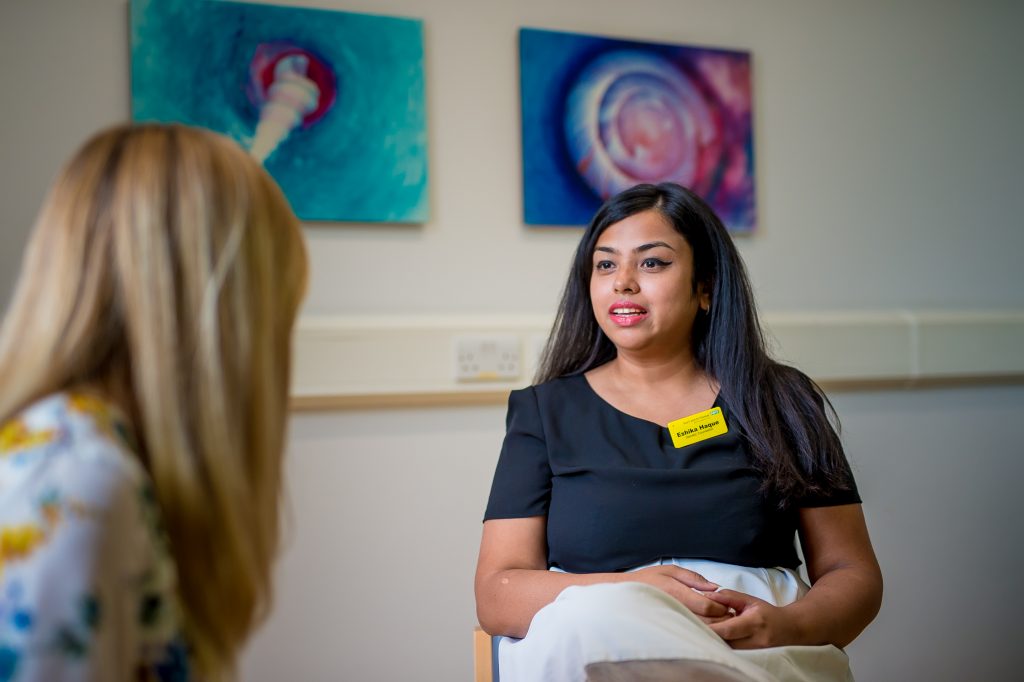A day in the life of a Genetic Counsellor
Eshika Haque, a genetic counsellor at Guy’s Hospital, speaks to us about how she provides support, information and advice for patients having a genetic test.
Some health conditions have a genetic cause and may run in families. By using a genetic test, scientists can tell us whether a patient is carrying an altered gene – a genetic mutation – that causes a particular medical condition.
For instance, women who carry a BRCA gene mutation have an increased risk of developing breast cancer during their lifetime.
Genetic tests are carried out for a number of reasons – to diagnose a genetic condition, to help work out the chances of developing one, or to determine the risks of a child inheriting a genetic disorder.

The team at Guy’s and St Thomas’ has 15 genetic counsellors who specialise in different areas, such as cancer genetics or general genetics. Each year, they are visited by more than 400 patients who are considering a genetic test.
It can be a stressful and emotional time so we work closely with families and individuals to help them understand the implications that the genetic information could have on their lives.
9:00am – I start the day by responding to emails and spend time going through the notes of the patients I’m due to see that day. Our team also has a weekly meeting which involves discussing patients and the running of the department. I specialise in preimplantation genetic diagnosis (PGD), an IVF technique that can be used by people who have a serious inherited disease in their family to avoid passing it on to their children. We are the largest and most successful clinic in the UK for PGD.

10:00am – My first hour-long consultation is with a couple who have a family history of cystic fibrosis, a genetic condition that affects the lungs and digestive system. As well as going through the inheritance risk, we discuss the process of PGD.

11:00am – After the appointment I write a detailed letter to the patients outlining our consultation. If they decide they want PGD, I arrange for blood and/or saliva samples to be taken. This involves testing immediate family members no matter where they live in the world – I’ve had samples sent over from Colombia, Nigeria and Ghana.
2:00pm – When the clinic is over I go through the referral tray. The most common condition I get referrals for is cystic fibrosis, followed by Huntington’s disease – an inherited condition that stops parts of the brain working properly over time. Requests to undertake PGD for a genetic condition that we haven’t seen before are discussed at the weekly multidisciplinary meeting, which involves a whole range of specialists including embryologists, geneticists and the Assisted Conception Unit.
4:00pm – Before we can offer PGD for a new condition we need a licence from the Human Fertilisation and Embryology Authority. I spend time researching some of the complex disorders and use this information to submit an application if a new licence is needed.
6:00pm – I usually head home around this time. Genetic counselling is challenging but rewarding. We are a specialist centre for clinical genetics and involved with families throughout the whole process, making sure they can cope emotionally with the result and they have the necessary support in place before receiving their test results. Giving someone the news that they don’t have a genetic disease is fantastic, and seeing a couple with their baby at the end of a long PGD process is the best part of my job.
First published in the Guy’s and St Thomas’ NHS Foundation Trust GiST magazine – Issue 27.
